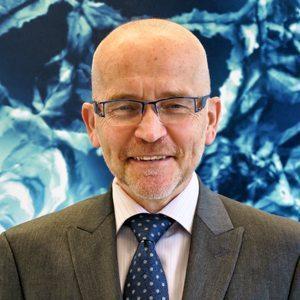
Credit: Georgia State University
ATLANTA–Dr. Leszek Ignatowicz, a professor in the Institute for Biomedical Sciences at Georgia State University, has received a five-year, $1.95 million federal grant to study what causes autoimmunity in the human body.
Autoimmune diseases, which occur when the immune system mistakenly attacks the body’s own organs, tissues and cells, are the third most common group of diseases in the United States after cancer and heart disease. More than 100 types of autoimmune diseases have been identified, including Type 1 diabetes, rheumatoid arthritis, multiple sclerosis, lupus, psoriasis, thyroid diseases and inflammatory bowel disease.
Most autoimmune diseases have no cure, which results in debilitating symptoms, organ function loss and even death. Despite how common and increasingly prevalent autoimmune diseases have become, they largely remain a mystery.
This grant from the National Institutes of Health’s National Institute of Allergy and Infectious Diseases will fund research to understand why the immune system attacks its own body, referred to as compromised tolerance, and how autoimmunity develops.
All vertebrates, including humans, have two levels of immunity. The first is the innate immune system, which is activated by molecules common in bacteria, parasites or viruses. The second layer of defense is the adaptive immune system, which depends on lymphocytes (B cells or T cells), one of the body’s main types of immune cells. Autoimmunity takes place when lymphocytes become activated by peptides derived from the body’s own proteins rather than those from pathogens, activating an immune response.
Most people don’t get autoimmune diseases because tolerance works properly in their body. With central tolerance, T cells that have a capacity to be pathogenic and autoreactive, or activated by self-antigens, are supposed to be eliminated and die in the thymus gland where they originally developed. This process is not 100 percent reliable, and an unknown percent of potentially autoreactive T cells escape and may cause autoimmunity. Then, a second line of security called peripheral tolerance identifies these remaining T cells that have the potential to be autoreactive and inhibits them.
“The goal of this work is to better understand how the natural limitations of thymic selection predispose us to autoimmunity,” Ignatowicz said. “This research will provide a better understanding of cellular and molecular mechanisms driving autoimmunity and help to develop therapeutic strategies targeting autoreactive T cells that escaped central tolerance. From a clinical perspective, identification of dormant, autoreactive T cells is critically important for saving a new category of autoimmune patients with peripheral tolerance deliberately broken by regulatory T cells that silence treatments to enhance immunity to infection or cancer.”
###
For more information about the grant, visit https:/
Media Contact
LaTina Emerson
[email protected]
Original Source
https:/




